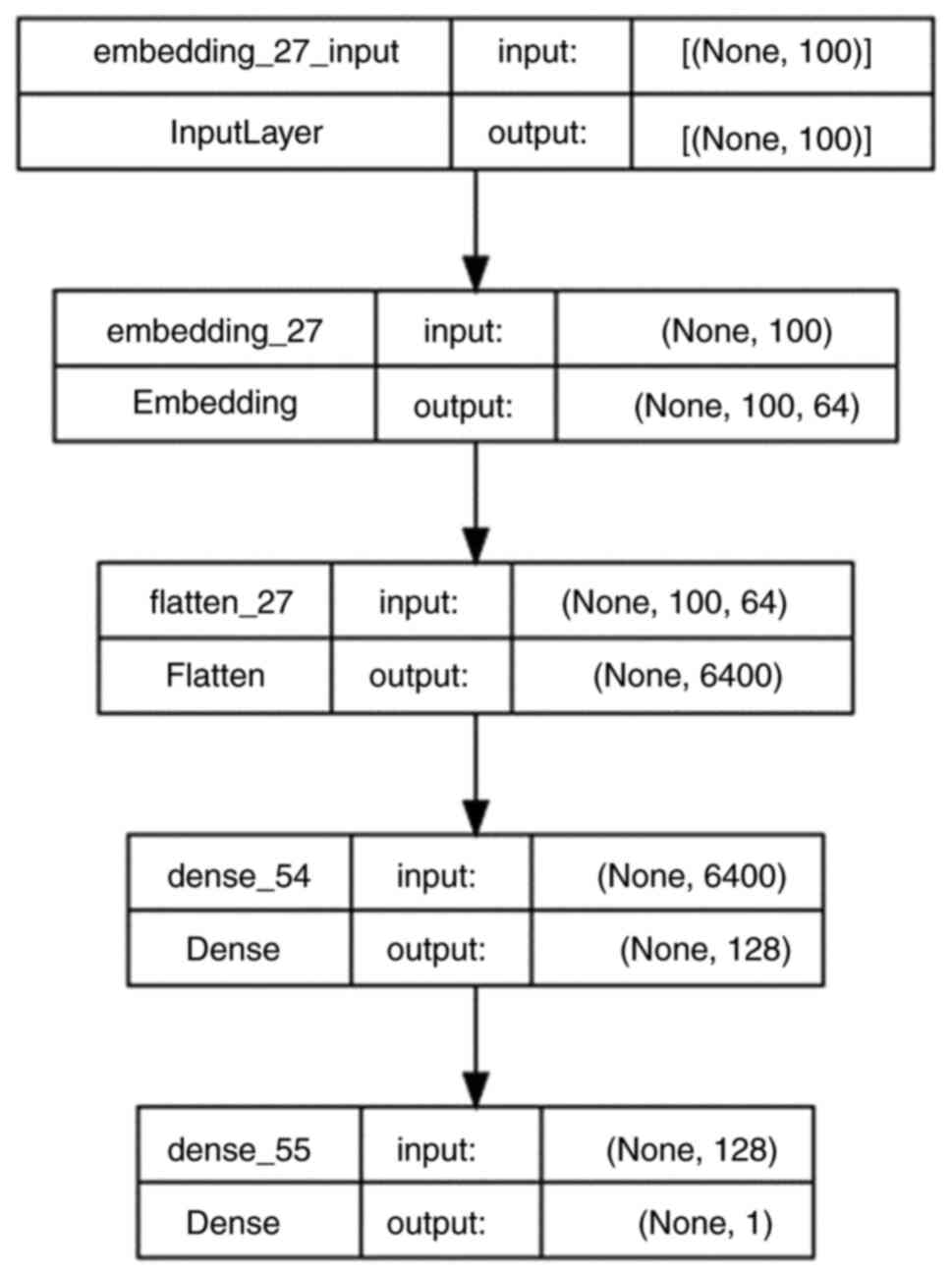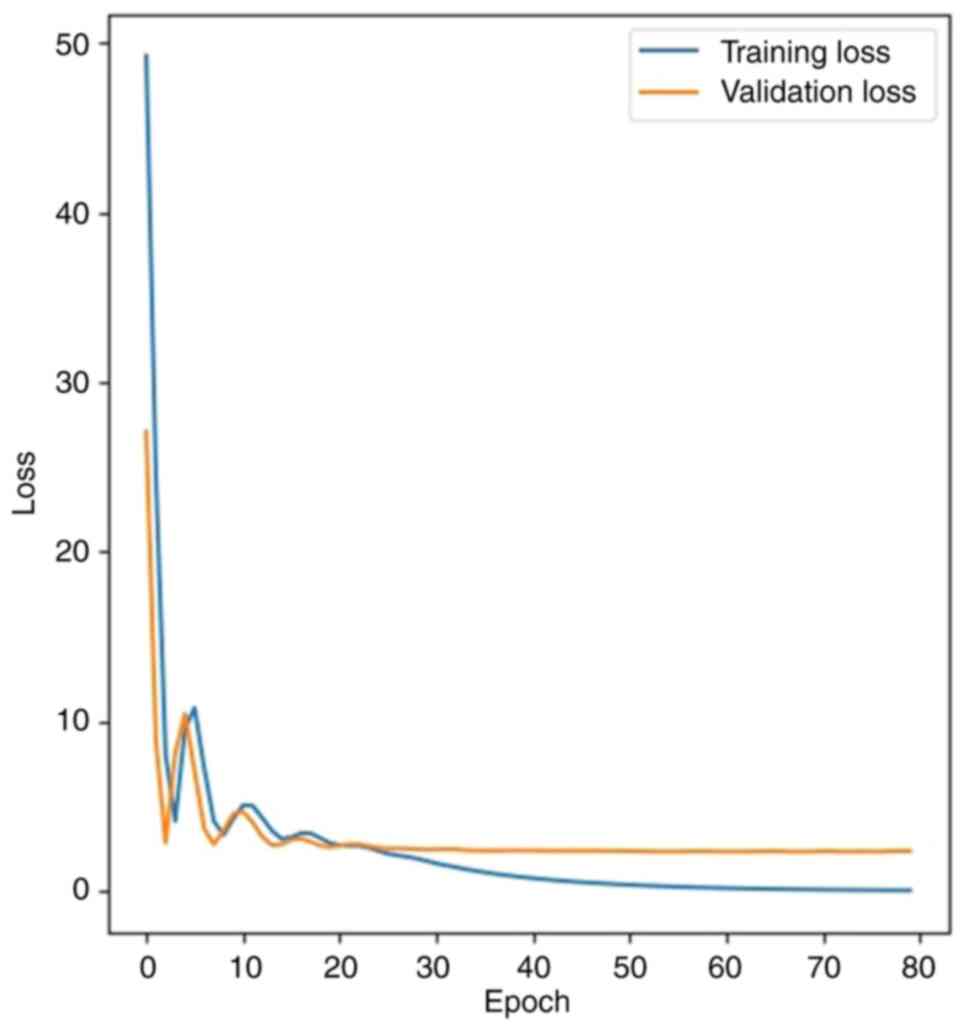|
1
|
Mardhiyah A, Philip K, Mediani HS and
Yosep I: The association between hope and quality of life among
adolescents with chronic diseases: A systematic review. Child
Health Nurs Res. 26:323–328. 2020.PubMed/NCBI View Article : Google Scholar
|
|
2
|
Rustøen T: Hope and quality of life, two
central issues for cancer patients: A theoretical analysis. Cancer
Nurs. 18:355–361. 1995.PubMed/NCBI
|
|
3
|
Soleimani MA, Mohammad A, Zarabadi-Pour S,
Huak Chan Y, Allen KA and Shamsizadeh M: Factors associated with
hope and quality of life in patients with coronary artery disease.
J Nurs Res. 30(e200)2022.PubMed/NCBI View Article : Google Scholar
|
|
4
|
Cheavens J: Hope and Depression: Light
Through the Shadows. In: Handbook of Hope. Snyder CR (ed). Academic
Press, Cambridge, MA, pp321-340, 2000.
|
|
5
|
Corn BW, Feldman DB, Hull JG, O'Rourke MA
and Bakitas MA: Dispositional hope as a potential outcome parameter
among patients with advanced malignancy: An analysis of the ENABLE
database. Cancer. 128:401–409. 2022.PubMed/NCBI View Article : Google Scholar
|
|
6
|
Bunston T, Mings D, Mackie A and Jones D:
Facilitating Hopefulness. J Psychosoc Oncol. 13:79–103. 1995.
|
|
7
|
van Baalen CN, Grypdonck M, van Hecke A
and Verhaeghe S: Associated factors of hope in cancer patients
during treatment: A systematic literature review. J Adv Nurs.
76:1520–1537. 2020.PubMed/NCBI View Article : Google Scholar
|
|
8
|
Oken MM, Creech RH, Tormey DC, Horton J,
Davis TE, McFadden ET and Carbone PP: Toxicity and response
criteria of the Eastern Cooperative Oncology Group. Am J Clin
Oncol. 5:649–655. 1982.PubMed/NCBI
|
|
9
|
Snyder CR, Harris C, Anderson JR, Holleran
SA, Irving LM, Sigmon ST, Yoshinobu L, Gibb J, Langelle C and
Harney P: The will and the ways: Development and validation of an
individual-differences measure of hope. J Pers Soc Psychol.
60:570–585. 1991.PubMed/NCBI View Article : Google Scholar
|
|
10
|
Beam AL, Drazen JM, Kohane IS, Leong TY,
Manrai AK and Rubin EJ: Artificial intelligence in medicine. N Engl
J Med. 388:1220–1221. 2023.PubMed/NCBI View Article : Google Scholar
|
|
11
|
Obayuwana AO, Collins JL, Carter AL, Rao
MS, Mathura CC and Wilson SB: Hope index scale: An instrument for
the objective assessment of hope. J Natl Med Assoc. 74:761–765.
1982.PubMed/NCBI
|
|
12
|
Herth P: Measuring hope: Development of
the Herth Hope Index. J Nurs Scholarsh. 32:309–315. 2000.
|
|
13
|
Anastaisya Z: Text classification in
artificial intelligence. InData Labs, 2023. https://indatalabs.com/blog/text-classification-in-artificial-intelligence.
Accessed September 21, 2024.
|
|
14
|
Sandoval AM: Text Analytics: The
convergence of big data and artificial intelligence. Int J Interact
Multimed Artif Intell. 3:57–64. 2016.
|
|
15
|
Pleeging E: Measuring hope: Validity of
short versions of four popular hope scales. Qual Quant.
56:4437–4464. 2022.
|
|
16
|
Acharya S: What are RMSE and MAE? A Simple
Guide to evaluation metrics. Towards Data Science, 2021. https://towardsdatascience.com/what-are-rmse-and-mae-e405ce230383.
Accessed September 21, 2024.
|
|
17
|
Wahl AK, Rustoen T, Lerdal A, Hanestad BR,
Knudsen O Jr and Moum T: The Norwegian version of the Herth Hope
Index (HHI-N): A psychometric study. Palliat Support Care.
2:255–263. 2004.PubMed/NCBI View Article : Google Scholar
|
|
18
|
Geiser F, Zajackowski K, Conrad R,
Imbierowicz K, Wegener I, Herth KA and Urbach AS: The German
version of the Herth Hope Index (HHI-D): Development and
psychometric properties. Oncol Res Treat. 38:356–360.
2015.PubMed/NCBI View Article : Google Scholar
|
|
19
|
Mystakidou K, Parpa E, Tsilika E,
Athanasouli P, Pathiaki M, Galanos A, Pagoropoulou A and Vlahos L:
Preparatory grief, psychological distress and hopelessness in
advanced cancer patients. Eur J Cancer Care (Engl). 17:145–151.
2008.PubMed/NCBI View Article : Google Scholar
|
|
20
|
Pinquart M and Duberstein PR: Associations
of social networks with cancer mortality: A meta-analysis. Crit Rev
Oncol Hematol. 75:122–137. 2010.PubMed/NCBI View Article : Google Scholar
|
|
21
|
Cohen MG, Althouse AD, Arnold RM, Bulls
HW, White DB, Chu E, Rosenzweig MQ, Smith KJ and Schenker Y: Hope
and advance care planning in advanced cancer: Is there a
relationship? Cancer. 128:1339–1345. 2022.PubMed/NCBI View Article : Google Scholar
|
|
22
|
de Hond A, van Buchem M, Fanconi C, Roy M,
Blayney D, Kant I, Steyerberg E and Hernandez-Boussard T:
Predicting depression risk in patients with cancer using multimodal
data: Algorithm development study. JMIR Med Inform.
12(e51925)2024.PubMed/NCBI View
Article : Google Scholar
|
|
23
|
Haug CJ and Drazen JM: Artificial
intelligence and machine learning in clinical medicine, 2023. N
Engl J Med. 388:1201–1208. 2023.PubMed/NCBI View Article : Google Scholar
|
|
24
|
Feldman DB and Corn BW: Hope and cancer.
Curr Opin Psychol. 49(101506)2023.PubMed/NCBI View Article : Google Scholar
|
|
25
|
Everson SA, Goldberg DE, Kaplan GA, Cohen
RD, Pukkala E, Tuomilehto J and Salonen JT: Hopelessness and risk
of mortality and incidence of myocardial infarction and cancer.
Psychosom Med. 58:113–121. 1996.PubMed/NCBI View Article : Google Scholar
|
|
26
|
Nikoloudi M, Tsilika E, Kostopoulou S and
Mystakidou K: Hope and distress symptoms of oncology patients in a
palliative care setting. Cureus. 15(e38041)2023.PubMed/NCBI View Article : Google Scholar
|

















